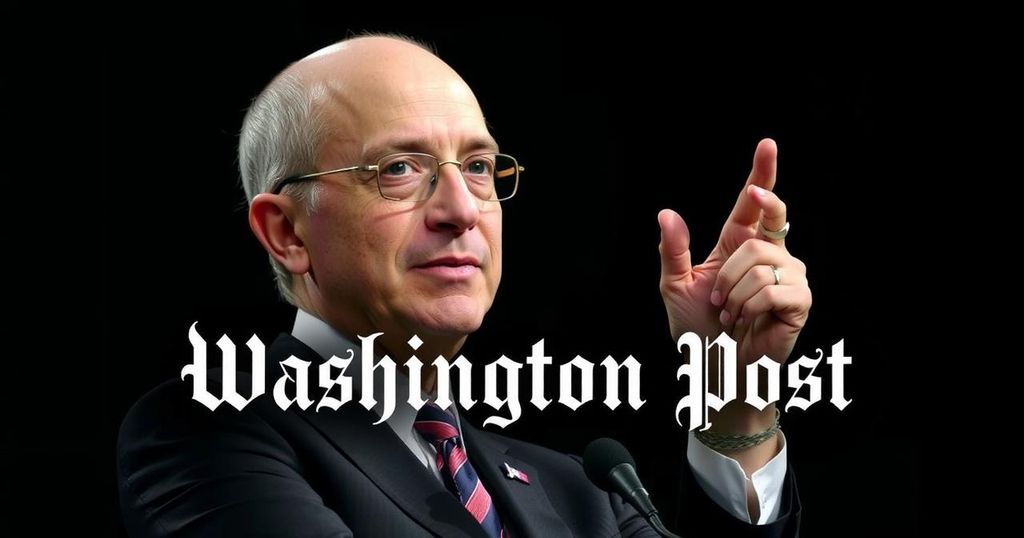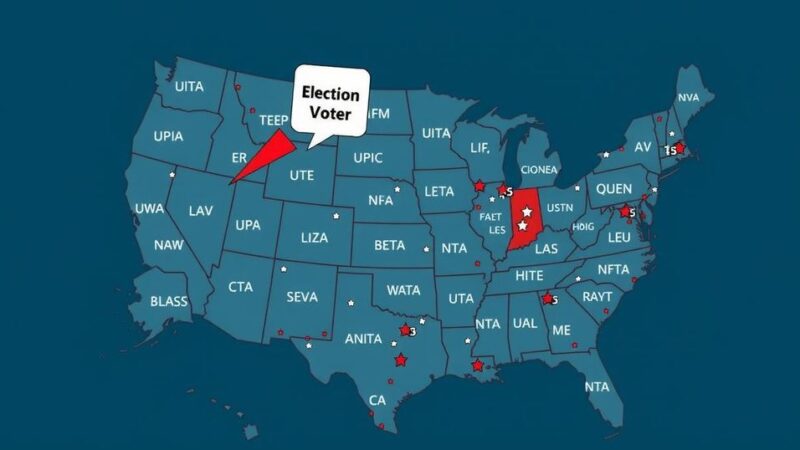Jeff Bezos has defended The Washington Post’s decision to forgo presidential endorsements, citing concerns about bias perception. This decision has triggered over 200,000 subscription cancellations following the announcement that it would not endorse any candidate, including presumptive Democratic nominee Kamala Harris. Bezos emphasized that the decision was principled, while internal disagreements among journalists have surfaced, reflecting concerns over the newspaper’s legacy and journalistic integrity.
Jeff Bezos, owner of The Washington Post, has publicly defended the newspaper’s decision to refrain from endorsing any presidential candidate in the upcoming election, a move that has sparked considerable backlash, including approximately 200,000 cancellations of digital subscriptions. According to National Public Radio (NPR), this decision precluded a planned endorsement of Democratic candidate Kamala Harris, prompting discontent among some readers who attributed the decision to Bezos’s influence as the founder of Amazon and Blue Origin. In an opinion piece published in The Washington Post, Bezos articulated that public perception of bias in media is prevalent, thereby necessitating a commitment to credibility from news outlets. He stated, “Presidential endorsements do nothing to tip the scales of an election. What presidential endorsements actually do is create a perception of bias. A perception of non-independence. Ending them is a principled decision, and it is the right one.” Bezos addressed concerns regarding possible repercussions from the political landscape, notably speculation about potential retaliation from Republican candidate Donald Trump. He assured that no candidate had been consulted about the decision and emphasized that there was no connection to any Blue Origin meeting held with Trump on the same day. William Lewis, publisher and CEO of The Washington Post, confirmed the strategic shift away from endorsing presidential candidates, stating, “We are returning to our roots of not endorsing presidential candidates.” The Washington Post, renowned for its historical investigative journalism, has won the Pulitzer Prize 76 times but now faces internal dissent as some columnists have publicly opposed the endorsement decision. Criticism has arisen, with dissenting voices within the newspaper arguing that the lack of endorsements constitutes a departure from the core editorial principles of the publication. This decision follows a similar announcement from the Los Angeles Times, which reported significant subscriber losses after opting not to endorse a presidential candidate, highlighting a growing trend among prominent newspapers.
The decision by The Washington Post to cease presidential endorsements has emerged amidst a politically charged environment as the United States approaches an election. This move reflects broader concerns regarding media bias and independence, particularly as affluent individuals like Jeff Bezos have significant media ownership stakes. The Washington Post’s storied history, including its acclaimed investigative journalism, adds a dimension of scrutiny and legacy to the current discourse. The implications of not endorsing candidates, particularly in an era where many media outlets have adopted similar stances, are significant in shaping public perceptions of political coverage.
In conclusion, Jeff Bezos’s defense of The Washington Post’s decision to discontinue presidential endorsements underscores a commitment to mitigating perceived media bias. This decision, while intended to enhance credibility, has led to a substantial backlash from subscribers and raised questions about the publication’s editorial integrity. The growing trend among major newspapers to forgo such endorsements signals shifting dynamics in political journalism, compelling media entities to navigate the fine line between independence and audience expectations.
Original Source: www.aljazeera.com






